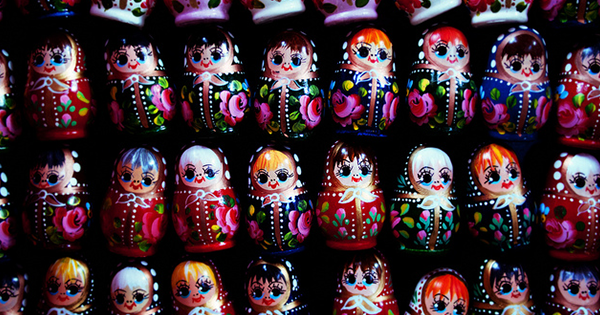
I was at a winery the other day, high up on a sprawling hill in Oregon, on a startlingly sunny day, and got to talking to an elderly gentleman who explained that he was from Russia, and he came up to the winery on sunny days when he could, driven by his silent grinning son, because the view reminded him of the Russian countryside, which he loved and missed very much sometimes.
Though your wine here is better than ours, he continued. Much better. Our wine is not terrible, but it is almost so. You could drink it if you had nothing else. I never did like vodka. It is potato wine, essentially, which is not an appetizing idea. Russia itself is an appetizing idea that has never quite flowered. We keep getting pruned by greedy men. What is Russia like? I will tell you a story. One time a statue was being taken down. The statue was of a famous man who directed the murders of thousands of innocent people and so was of course acclaimed a hero. As the statue is coming down, the head breaks off and bounces across the street and crushes a cab with the driver inside. The headline in the paper the next day reads, WORKINGMAN SLAIN BY GOVERNMENT OFFICIAL. This tells you something about Russia. Russia makes you want to laugh and cry at the same time. One day something is funny, and the next day the same thing is terribly sad. This is Russia. On a sunny day on a hill in the forest, there is no more beautiful place in the world. But under your feet are probably the bones of children who starved. Our very best writers tried to write everything at once. Lev Nikolayevich tried to write every moment, and Anton Pavlovich tried to write one moment that encompassed them all. This tells you something about Russia also. It is a brave and craven country at once. We are great at war and terrible at peace. We want everything, and we don’t care about anything.
Sometimes I think America and Russia are always at odds because they are such close brothers. You are big and violent and greedy and childish like we are. We are petulant and generous and grand and petty, as you are. You have much better wine, though. I blame Stalin for our wines. He loved sugar, so our wines had to be sweet to please him, but sweet wine is for children to drink behind the barn. My son says that now there are decent wines being made near the Black Sea, but I have not had them, so I cannot say.
Now I am too old to go back to Russia to try those wines, but I can sit here, on a sunny day, and appreciate America, and remember the best parts of Russia. There are so many great parts. The smallest parts are the best ones. In the end Anton Pavlovich is our greatest writer because he understood that the large is in the small. This is what all religions are after, in the end. You can discover much about a country from its wines, about a man from his shoes, about a woman from the skin around her eyes. I look to see how much she has smiled in her life, which you can see around the eyes. Everyone wants to talk to me about Putin, but he is just another man who thinks he knows best. You have many men like that also. I do not dignify him with his real name. He will pass, and another pompous man will take his place. Such is life. Someday perhaps both our countries will have poets for presidents. I would like to see that. Perhaps even women poets. Poets can be pompous also of course, like Yeats, but they see the large in the small, and they have music in their heads always, and those are good things.
I would love a second glass of wine, but one glass is as two for a man of my age, and my son has twice gestured to me that we should go. I have dinner with him and his family every Sunday. To be surrounded by grandchildren is to be blessed above all other blessings. Someday perhaps you will be so blessed. I wish this for you. Someday perhaps we will meet again on this hill and share a glass. That will be a blessing also. My prayers on your family. Go home and read a story by Anton Pavlovich. That is always a good thing to do.

